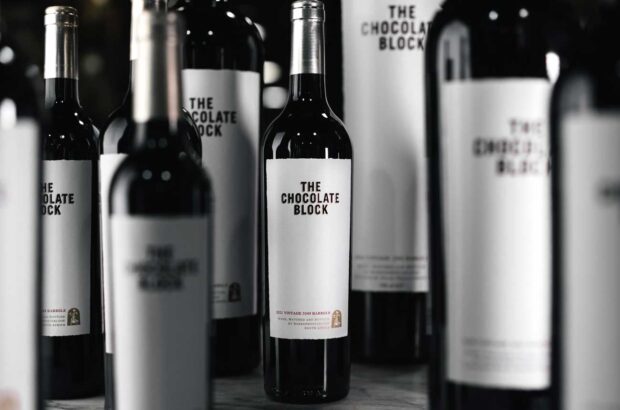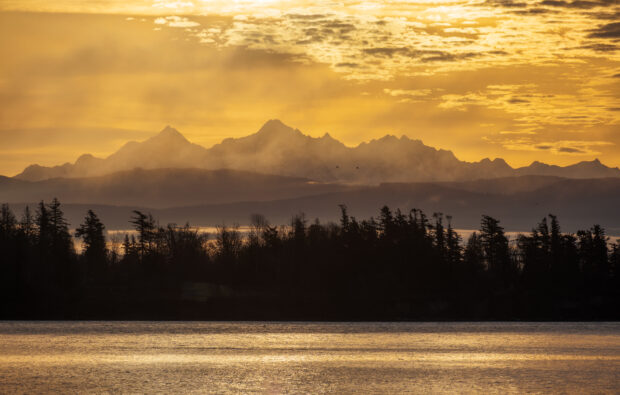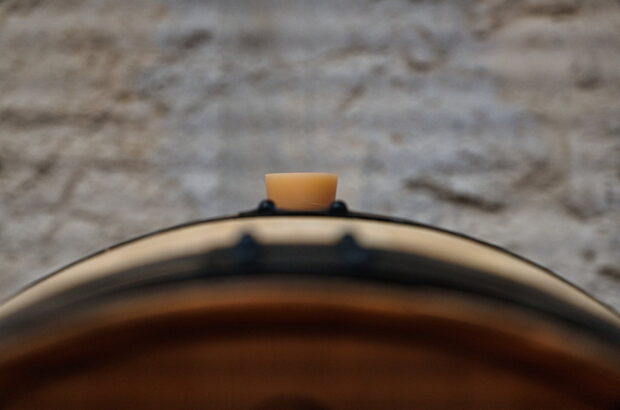This year’s Decanter Rising Star combines academic diligence of the highest level with a deep sensitivity for nature. One of the world’s best sommeliers, Pascaline Lepeltier has brought a wealth of knowledge and love for wine to her guests over the past two decades. In 2022, she published Mille Vignes, her first wine book written as a sole author. One Thousand Vines, its English translation, comes out this autumn (£45 Mitchell Beazley, late October in the UK). Pensive, philosophical, yet very approachable, it’s without doubt one of this era’s seminal works on wine.
Lepeltier grew up in the Loire, but she wasn’t born into wine. With a love for studying, she began learning ancient Greek at school aged 10. Her intensive education was ‘extremely formative’, she says, giving her the analytical skillset that would later prove so helpful when writing Mille Vignes. A philosophy degree at Nantes University was followed by a master’s by age 21, with a thesis on French philosopher Henri Bergson, whose work still inspires her.
Lucky detour
Next was going to be a PhD to pursue a career in teaching, but as Pascaline was still young and lacking in confidence, her teacher encouraged her to take a break – to do something with her hands. She returned to Angers, where she met Patrick Rigourd, the head wine merchant at Des Halles et des Gourmets, who introduced her to wine and became her mentor.
She took another master’s in hospitality management, then a sommelier diploma. An experience with a bottle of 1937 Château d’Yquem was her sliding door moment: her way forward in life was to be in wine. While studying, she interned at chef Jacques Thorel’s two-Michelin-starred L’Auberge Bretonne in La Roche-Bernard. She recalls: ‘Growing up, I didn’t go to restaurants with my parents; I discovered the world of gastronomy during my internship. I became fascinated by taste and the power of the palate, and really saw it as an anthropological study. I realised this is the centre of life, the centre of culture, the very centre of civilisation.’
Working with an incredible wine list, she began honing her palate by tasting wine from domaines such as Domaine des Comtes Lafon, Trimbach, Henri Jayer, Domaine Leroy, Pétrus, Domaine de la Romanée-Conti, Egon Müller, Château Musar, Ridge and more. In the Loire, she worked harvests with Domaine des Griottes and Benoît Courault.
Passion for organics
During this period, she spent two days a week in vineyards with winemakers such as Mark Angeli of Ferme de la Sansonnière and Nicolas Joly: two of France’s foremost proponents of organic and biodynamic agriculture. ‘Right away, I was convinced by the differences in terms of soil and plant health I was seeing in organic and biodynamic vineyards, and the result was in the bottle,’ she says. ‘I was blessed from early on to meet winemakers who became very dear friends. I couldn’t not want to champion them.’
After working at Rouge Tomate in Brussels and the George V, Paris, in 2009 she became beverage director for Rouge Tomate in New York. There, she composed one of the world’s most celebrated wine lists, while also becoming an advocate for healthier viticulture. In 2014, she passed the Master Sommelier exams, but following the revelations in 2020 of abuse of power and sexual harassment by some Master Sommeliers in the US, and feeling increasingly disconnected with the way wine was being taught, she decided to no longer be an active member of the Court of Master Sommeliers.
Angeli says: ‘Pascaline is one of very few sommeliers worldwide who masters all aspects of the profession, above and beyond the norm. This precious quality, combined with an encyclopaedic knowledge, allows her also to be a winemaker and a writer, and to foil the falsehoods so commonly found in wine. Without her and her holistic approach, Anjou would still be in the limbo of anonymity and in the throes of poor sales.’
At Rouge Tomate, Lepeltier searched for local organic wines, but few existed. When she met likeminded winemaker Nathan Kendall the seed was sown to produce wine together from New York state’s historical hybrid varieties Delaware, Catawba and Concord. Their brand, chëpìka, was born in 2016.
Pascaline says chëpìka is very dear to her heart: ‘Nathan is the winemaker; a force in the region. I bring ideas, collaboration and perspective. It is our way to be vocal about the viticultural potential of these varieties, which are so suited to this terroir, which [in turn means they] need less agricultural input. They are part of the future.’

Mark Angeli at Ferme de la Sansonnière, Anjou-Saumur. Credit: Christina Rasmussen (Littlewine)
Social conscience
The pair spread awareness beyond wine. The name chëpìka, meaning ‘root’, comes from the Lenape language spoken by the Indigenous peoples of the Delaware valley, honouring their culture and history. They support OJI:SDA’ Sustainable Indigenous Futures, an Indigenous women-founded non-profit, and the Literacy Volunteers of Ontario-Yates, supporting vineyard workers with language skills.
In 2018, Lepeltier was named Best Sommelier of France and received the prestigious Meilleure Ouvrière de France (Best Worker/Craftsman of France) award. Today, she’s beverage director at Chambers, which opened in 2022 and is already one of New York’s most revered restaurants.
‘My job on the floor is to support winemakers who put sweat and tears into their work. We need to communicate about people doing the work in terms of farming, the social and economic aspects of their wineries – creating jobs – now more than ever. So many winemakers are under the radar. How can we support an industry to make tomorrow possible, and to make wine once again such a central part of civilisation? Wine is a way to link to nature and to culture; for people to rediscover what farming means.’

Pascaline Lepeltier and Nathan Kendall, with whom she produces wine under the chëpìka label. Credit: Christina Rasmussen
Passing on knowledge
In Mille Vignes, Pascaline weaves together the intricacies of history, the relationships among vines, companion plants, the soil and microbes, the climate and the fundamental principles of cultivation and winemaking; and, most importantly, why it all matters. She makes the reader question the ethos of wine, and what wine should and can represent.
Decanter Contributing Editor Andrew Jefford says: ‘Mille Vignes is a wonderful compendium of knowledge – not only about wine but around wine, presented with encyclopaedic intent and academic refinement: she’s chased up every reference, every thread. Pascaline has given us the breadth of her own remarkable knowledge, in a spirit of generosity very typical of her. I find it a hugely enjoyable, exciting and original book on wine – a real achievement from an outstanding member of the global wine community.’
As for the future, a second book is already on Lepeltier’s mind. With sportsperson-like dedication, she will compete again at the ASI Best Sommelier of Europe, Africa & Middle East competition 2024 after placing 4th in 2023 in the World contest. She’s also working on a new tasting method. ‘We need to find a new way of tasting. I’ve been tasting better with tricks, and this is a path I want to develop,’ she says.
‘I really believe that if you take the path of wine – living, vibrant vins de vignerons – it can help you get to know yourself better, re-love and re-appreciate yourself, and lead to extraordinary intellectual moments. I want to show that it’s possible to work with alcohol and have a very positive, serene relationship with your body.’
Pascaline Lepeltier
‘Seven people who have influenced me’
Eric Beaumard & Thierry Hamon
Director and head sommelier of Le Cinq, George V, Paris
They took a chance on me as a young apprentice at Le Cinq and taught me precision, determination, empathy and the importance of culture: to never give up, to always be curious, to share the knowledge, to be patient, to always aim for the geste juste (‘right move’).
Josep Roca
Co-owner and beverage director, El Celler de Can Roca, Girona
I consider Josep the most inspirational sommelier in the world today: the social, ecological and aesthetic commitments are just extraordinary, especially in the generous, humble mentorship he provides to his team and to winemakers and sommeliers like me.
Marc-André Selosse
Biologist, specialist in botany and mycology, professor at Muséum national d’Histoire naturelle, Paris
It is important for me to better understand our natural environment; his work has been of invaluable help regarding microbiota and the impact of modern farming… all explained in a clear, brilliant way. He kindly wrote a foreword for my book.
Elisabetta Foradori
Wine- & cheesemaker, Azienda Agricola Foradori, Trentino
An exceptional winemaker and woman whose wines and ethos have marked me since the first time I tasted her wines. I cherish every occasion to exchange with her. Her path, her philosophy of viticulture, agriculture and relationship with the environment have been an inspiration for me and for many others.
Coralie & Damien Delecheneau
Vignerons, La Grange Tiphaine, Amboise, Loire
I met Coralie and Damien early on, and I owe a lot to them for my knowledge on viticulture and winemaking. I have followed the evolution of the estate, from organic to biodynamic and regenerative, to ecological and human growth, and how to still produce terroir-driven, affordable wines.

Marc-André Selosse












